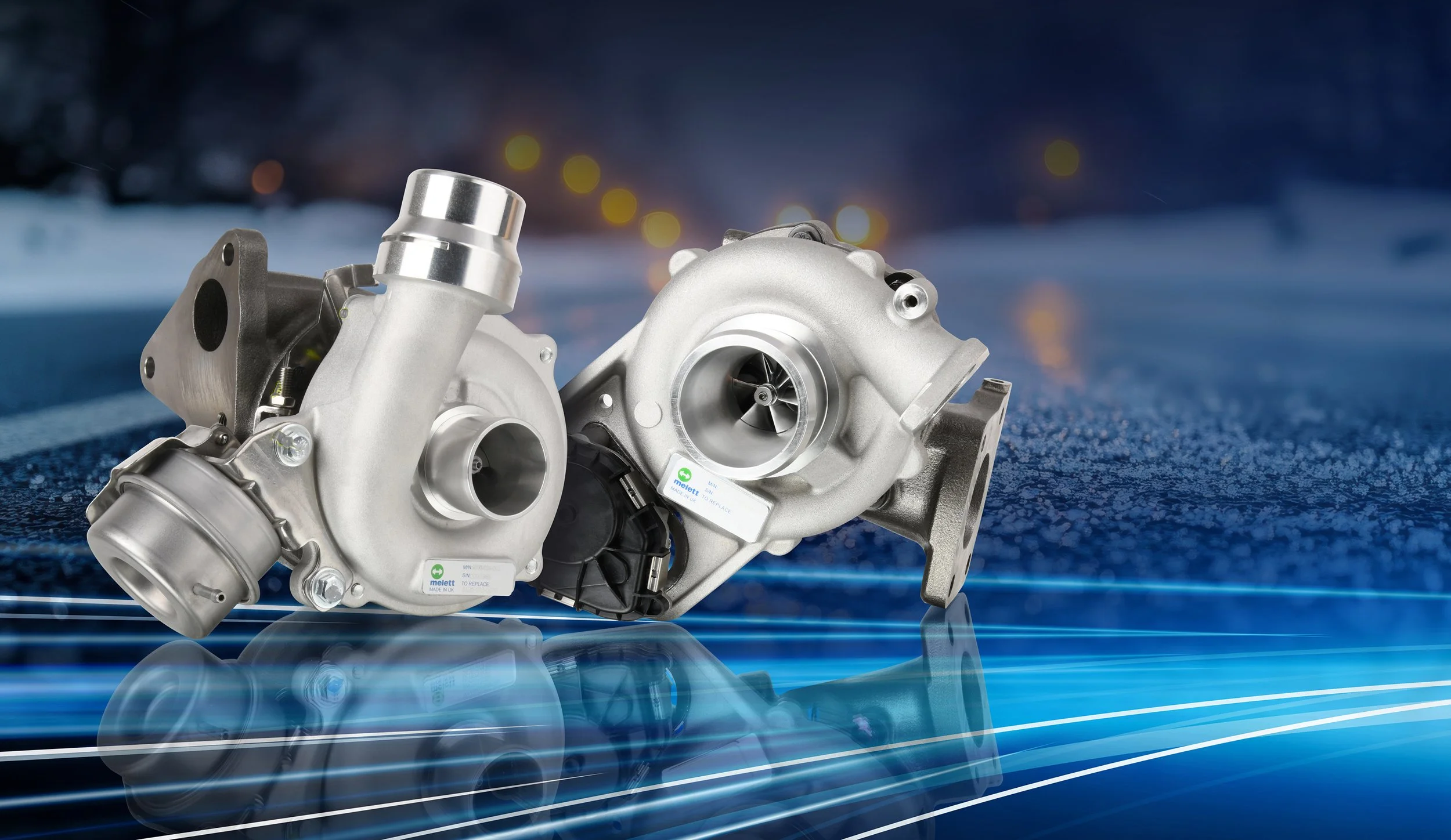Melett highlights winter turbo care as cold conditions bite
As temperatures drop and vehicles face harsher driving conditions, Melett is reminding technicians to keep turbocharger care front of mind this winter, and to help customers understand just how vital good maintenance is for turbo health.
Winter driving can be tough on turbochargers, particularly when vehicles are used for shorter trips, left standing for longer periods, or when servicing has been delayed. Melett warns that oil quality and circulation remain two of the biggest factors influencing turbo lifespan, and both can be compromised in cold weather.
“When oil thickens in low temperatures, or when the wrong grade is used, it simply can’t reach the turbo as quickly as it should,” explains Ian Claringbold of Melett's Technical Support Team. “That lack of lubrication, even for a few seconds, can cause wear that leads to early failure. It’s why priming the oil system and checking for restrictions is so important before fitting any replacement turbo.”
Melett is urging technicians to take a proactive approach with customers this winter, encouraging timely oil and filter changes, particularly for vehicles that are infrequently used. Contaminated or degraded oil is one of the most common causes of bearing and seal damage within turbochargers.
The brand also encourages drivers to adjust their driving practices during colder months to help protect the turbo. Allowing the engine to reach operating temperature before applying high revs ensures the turbocharger is properly lubricated and working safely. Likewise, avoiding unnecessary extended idling helps maintain oil quality and overall component health.
After a long or high-load journey, it’s advisable to let the engine idle briefly before switching off. This short cool-down period allows temperatures within the turbocharger’s CHRA (centre housing rotating assembly) to stabilise, reducing the risk of oil carbonising (coking) inside the unit, a common contributor to oil contamination and premature turbo failure.
With more hybrid and small-capacity petrol engines on UK roads than ever before, many of which use turbocharging technology, Melett says these reminders are now relevant to almost every workshop.
“Whether it’s a diesel van or a small turbo petrol car, the same principles apply,” Ian adds. “Good oil, clean filters, and the right installation procedures protect both the turbo and the customer’s investment.”

